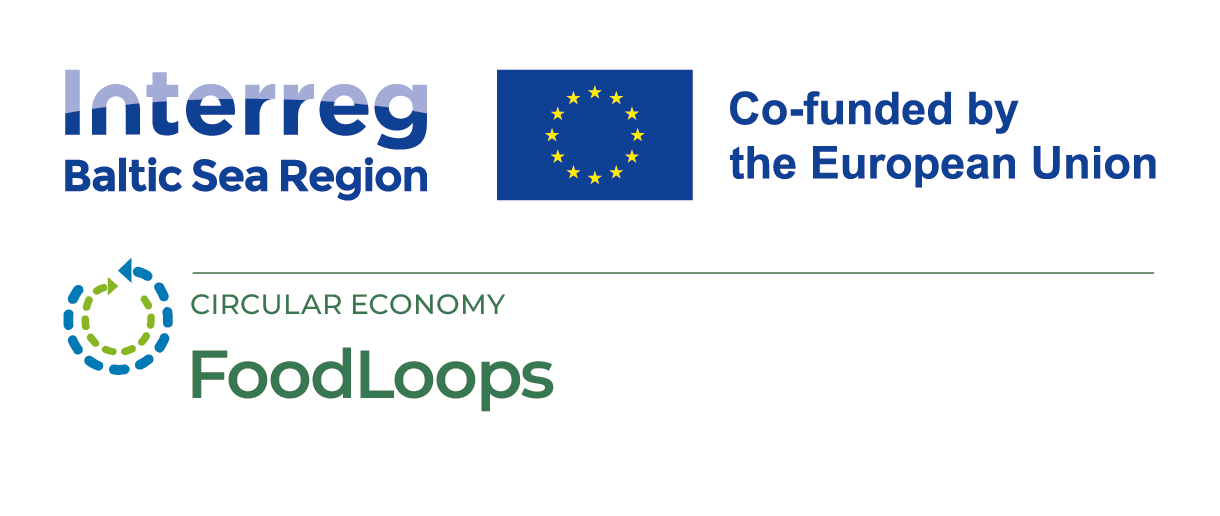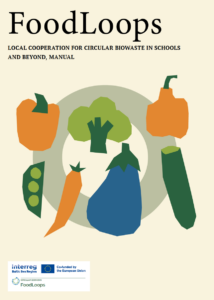
FoodLoops Manual Offers Roadmap to Tackle School Food Waste Through Local Partnerships
29 April 2025

A newly released FoodLoops Manual on Local Cooperation for Circular Biowaste in Schools and Beyond is empowering local communities to transform school food waste into a valuable resource. Drawing from real-life case studies and hands-on practices in Finland, Poland, and Lithuania, the manual is a practical guide for building sustainable local food systems through stakeholder collaboration.
Objectives of the Manual
-
Foster Multi-Stakeholder Collaboration
Enable cooperation across the local food waste value chain—schools, farmers, caterers, municipalities, regulatory bodies, and community partners—around circular bio-waste management.
-
Map Stakeholder Motivations & Challenges
Provide a framework for understanding the diverse drivers, needs, and barriers each group faces in reducing and valorizing food waste.
-
Co-Develop Practical Solutions
Offer guidance on jointly designing and implementing hands-on interventions—such as composting systems and gardening activities—that transform unavoidable bio-waste into valuable products (e.g., organic compost).
-
Share Effective Case Studies
Illustrate proven waste-reduction and sustainability practices drawn from FoodLoops pilot regions in Lithuania, Finland, and Poland, including school-based and community-driven initiatives.
-
Enhance Educational & Health Outcomes
Promote the integration of experiential learning—gardening, composting, and healthy eating workshops—to deepen environmental literacy and support healthier dietary behaviors.
-
Support Local Adaptation
Serve as a flexible, inspiration-driven resource that can be tailored to specific regional contexts, encouraging innovation in circular food-waste solutions globally.
This comprehensive manual addresses the status quo of food waste in the food service sector, examines critical stages of the food value chain, and offers innovative strategies for reducing food waste—especially in school settings.
Key Topics in the Manual Include:
•Status Quo of Food Waste in the Food Service Sector – An overview of current waste levels and practices.
•Food Loss vs. Food Waste – Clarifying terminology to align understanding across stakeholders.
•School Value Chain Analysis – Identifying where waste occurs in procurement, preparation, and consumption.
•Hierarchy of Food Waste – Prioritizing reduction, reuse, and valorisation methods.
•Mapping Challenges & Stakeholders – A practical tool to identify key actors and pain points in local food systems.
•Case Studies – In-depth analyses from:
•Kuopio, Finland
•Gdańsk, Poland
•Vilnius & Panevėžys, Lithuania
•Outcomes & Solutions – Synthesizing best practices, lessons learned, and replicable models.
Target Stakeholders and Their Roles:
•Farmers’ Associations – Partners in using school-generated compost and supporting circular practices in agriculture.
•Schools & Administrators – Leaders in procurement, waste separation initiatives, and student engagement.
•Municipalities – Facilitators of policy support, stakeholder cooperation, and infrastructure.
•Caterers – Frontline actors in food waste prevention, source separation, and operational efficiency.
How to Use the Manual:
The manual is structured around five key implementation phases:
1.Assessing the Local Situation – Identify food waste sources, enablers, and barriers within school food systems.
2.Building Trust – Host stakeholder workshops to establish shared goals and a collaborative mindset.
3.Co-developing Solutions – Organize at least six workshops per country to design and test local valorisation strategies.
4.Replication – Disseminate findings via transnational workshops to inspire similar initiatives elsewhere.
5.Feedback & Validation – Use stakeholder feedback to refine and strengthen the approach.
With its detailed framework and flexible design, the FoodLoops manual enables communities to address the environmental and educational challenges of food waste—while fostering partnerships that drive real change.
The manual can be downloaded here: https://interreg-baltic.eu/wp-content/uploads/2025/04/FOODLOOP_v9.pdf





